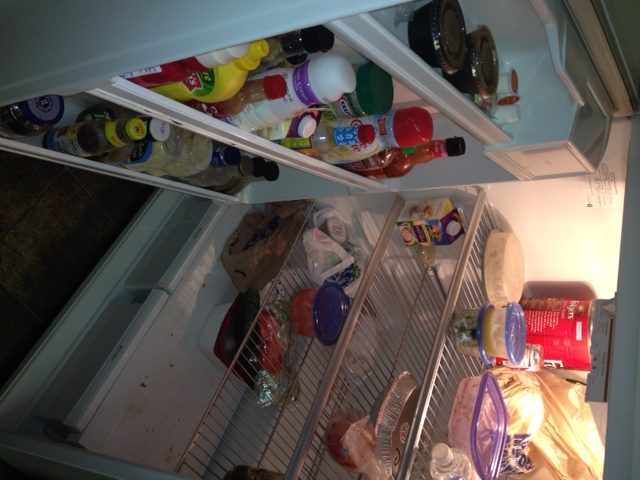I received an email from Anne in our office this week about the “uncomfortable” situation in the office refrigerator. It is too good not to share her thoughts on the office refrigerator policy:
The problem of food preservation has been a problem for humans since we first walked upright. For centuries we have struggled to preserve fresh meats, vegetables, fruit and dairy so that we can continue to enjoy these treats long past their prime. Snow and ice, cool streams and cellars were long ago used to refrigerate food. Meats and fish were preserved with salt or smoke. By the late 1800s, pioneers in refrigeration were making great strides in the area of the commercial application of this fantastic process. In 1911 Kelvinator and Servel introduced the first home refrigerators in the US. By the end of World War 2, almost every home contained one of these marvelous inventions. Finally, the average family was able to provide healthy fresh meat, produce and dairy to their families.
Refrigeration, though, does not stop the decay process, it simply slows it. All food, regardless of the type, has a shelf life. Typically this is long past the date printed on the package by the manufacturer but when the food begins to emit a strong foul odor that can permeate the confines of a small office, you can be assured that the item is no longer fit for human consumption. Generally your fresh meat and dairy products are the first to turn. The aforementioned foul odor is not the first indicator of spoilage. Meat will generally have a “slimy” feel to it that should warn you not to eat it. At this point, the item should be removed from the refrigerator and placed in the nearest trash receptacle. Knowing your “trash day” would be critical at this point. It is recommended that the food be placed in the garbage shortly before the bag is removed to the street for pickup. Any earlier and the food can develop a foul odor that will cause others discomfort. Fruit and vegetables also should be closely monitored for decay. Most will develop a softness that will indicate the item is no longer suitable for consumption. At this point, it should be removed to the trash. Dairy products are particularly susceptible to spoilage and they emit some of the worst odors known to man. It is important these items be VERY closely monitored. In this case, the sell by date can be used as your guide. In an older model cooling unit, it is unlikely that dairy products will remain fresh much past this critical date.
Given the time constraints of this author’s workday and the tremendous pressures she places on herself to achieve the high standards expected by her clients, she will not touch upon the damage rotting food can cause to the small plastic containers used to store leftovers in the modern refrigerator. Suffice it to say that, once decay sets in, these containers are more suited for the refuse pile than the dishwasher (which we don’t have).
Management and your colleagues urge you to be vigilant in the removal of your out of date food. Beginning Tuesday March 25, the newly (self) appointed Refrigerator Monitor will police the unit on a weekly basis (more often if necessary). Any item that she determines to be spoiled will be removed to the trash. The condition and/or value of any plastic container will not be considered during this process. All items left in the refrigerator longer than one week (7 days) will be subject to being discarded.
Thank you for your cooperation.
Anne Bilbrey, Commercial Account Manager

